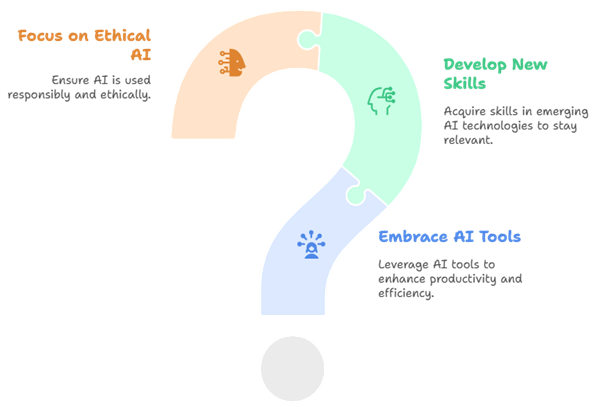For data scientists, the rise of AI presents both exciting opportunities and new challenges. While AI models are becoming increasingly powerful and automated, the role of the data scientist is not disappearing; it’s evolving. The key question we must ask is: what should data scientists prepare for in this AI-driven future?

Human-AI collaboration and evolving roles
Artificial Intelligence is rapidly transforming the data science landscape by automating tasks such as feature engineering, model selection, and even code generation. Tools like AutoML and generative AI significantly reduce experimentation time, allowing professionals to shift their focus toward higher-order responsibilities. Rather than replacing data scientists, these technologies enable them to frame the right problems, understand business needs, and safeguard ethical outcomes. The key takeaway is to embrace AI as a partner, developing oversight, validation, and fine-tuning skills that maximize its potential while ensuring responsible application.
The power of domain expertise and ethical responsibility
Technical proficiency alone will no longer guarantee success in the AI-driven future. As applications grow increasingly specialized, data scientists with strong domain knowledge in fields like healthcare, finance, or sustainability will have a competitive advantage. This expertise makes it possible to identify biases, ask deeper questions, and design impactful solutions. Alongside this, ethical responsibility is paramount. With AI influencing critical decisions, professionals must prioritize fairness, transparency, and accountability. Developing familiarity with frameworks for ethical AI ensures that systems are not only powerful but also just and trustworthy.
Communication, lifelong learning, and collaboration
Even the most sophisticated models will fall short if their insights cannot be communicated effectively. Data scientists must master storytelling, visualization, and clear explanations to bridge the gap between AI outputs and business decisions. At the same time, the fast pace of technological innovation requires a mindset of lifelong learning, adapting to new tools, frameworks, and approaches while cultivating creativity and critical thinking. Collaboration across disciplines is also crucial, as impactful AI solutions depend on close partnerships with engineers, policymakers, and business leaders. Strengthening these communication and teamwork skills ensures data scientists remain agile and indispensable contributors.
Conclusion
The future of data science lies not in resisting AI, but in growing with it. By embracing collaboration, strengthening domain expertise, committing to ethical practices, honing communication, and fostering continuous learning, data scientists can secure their relevance in an evolving landscape. AI will not eliminate the profession; instead, it will redefine it.
The real challenge is not whether AI will change the role, but how data scientists choose to evolve alongside it.

 English | EN
English | EN 